At COP27 in Egypt, as world leaders met to discuss their collective climate goals, much was spoken about loss and damage, which is one of the guiding principles in UNFCCC meant to address the impacts of climate change. Fishing communities across the world remain among the core frontline communities facing losses and damages to their lives and livelihoods due to climate impacts. This World Fisheries Day, the story of fisherfolk from Chellanam, Kerala, feels pivotal—as they face disruptions in their primary source of livelihood due to climate change.
Fishing is a major occupation in Kerala with as many as eight lakh fishermen families directly or indirectly dependent on the sea for their livelihood and sustenance. Across India, more than 40 lakh citizens are employed in the fisheries sector. Further, 68 percent of fisherfolk in Kerala fall below the poverty line, whereas the overall Indian figure stands at 61 percent.
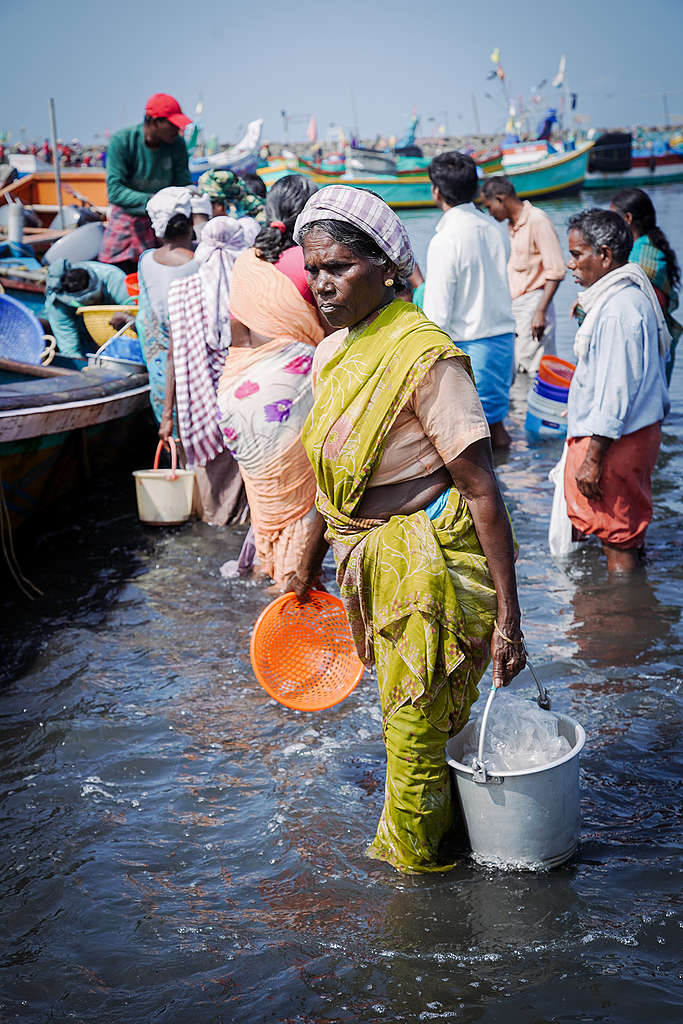
Chellanam has been experiencing increasingly frequent and intense cyclones in recent years. Its coastline has been facing the impacts of erosion and the sea has come dangerously close to the communities, destroying hundreds of homes. In fact, according to recent research, in the 19 year period between 2001 and 2019, the frequency of cyclones in the Arabian Sea increased by 52 percent and the intensity jumped from 20 percent to 40 percent.
Climate change is the major culprit with rapidly increasing oceanic temperatures, rising sea levels and changes in marine ecosystems. These changes have drastically reduced the seasonal catch for fishing communities, denying them their livelihoods, safety and security. In 2017, for example, Cyclone Ockhi led to a fall of 46 percent of annual fishing days in Kerala. The change in ocean temperature has also led to a drop in the population of vulnerable fish species, affecting the income of fishing communities and permanently altering marine life.
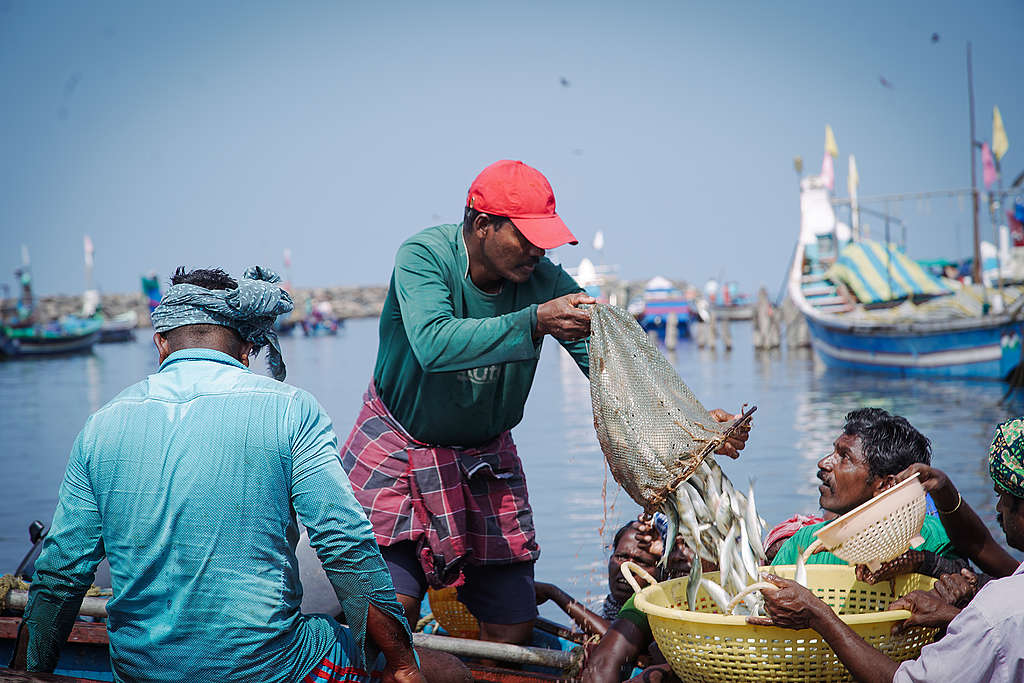
Most of the fisherfolk in Kerala are solely dependent on the sea for a living. In a bid to defend their livelihood, artificial barriers have been constructed, either on a community level using sandbags or sand heaps, or on the government level using tetrapods. But these measures can, at best, be called temporary. The only solution is for world leaders and communities to come together and act on the climate crisis.
A community-led response
In order to bring attention to affected communities and build a community-led response to the climate crisis, three events were organised at Fort Kochi and Chellanam, Kerala, from 5th to 8th of November 2022. On November 8th, Greenpeace India and members of Kerala’s fishing communities unfurled a 27 feet-by-60 feet banner on the open waters of the Chellanam Harbour which read “UNITED FOR CLIMATE JUSTICE”. The aim was to highlight the increasing impacts of climate change and demand climate justice.
A Roundtable Conference was also held at Fort Kochi on November 8th, hosting eminent speakers from various stakeholder groups with a special emphasis on impacted communities. The two events were preceded by a Youth Storytelling Workshop where youth community members from Kerala were encouraged to document and retell climate stories in realtime to bring out community-based climate resilience stories. With these actions, critical stakeholders from vulnerable communities across India expressed solidarity and challenged the inaction on climate change by country leaders and world leaders.
We must build collective resilience against the climate crisis, and we must do so equitably in close collaboration with frontline communities, from the fisherfolk of Kerala to the residents of Sundarbans. As a means of creating further momentum, Greenpeace India is collecting stories of citizens’ experiences around climate change, losses faced and resilient practices—to be compiled under a pan-India mapping process. You, too, can share your climate stories, as together, we stand united for climate justice!

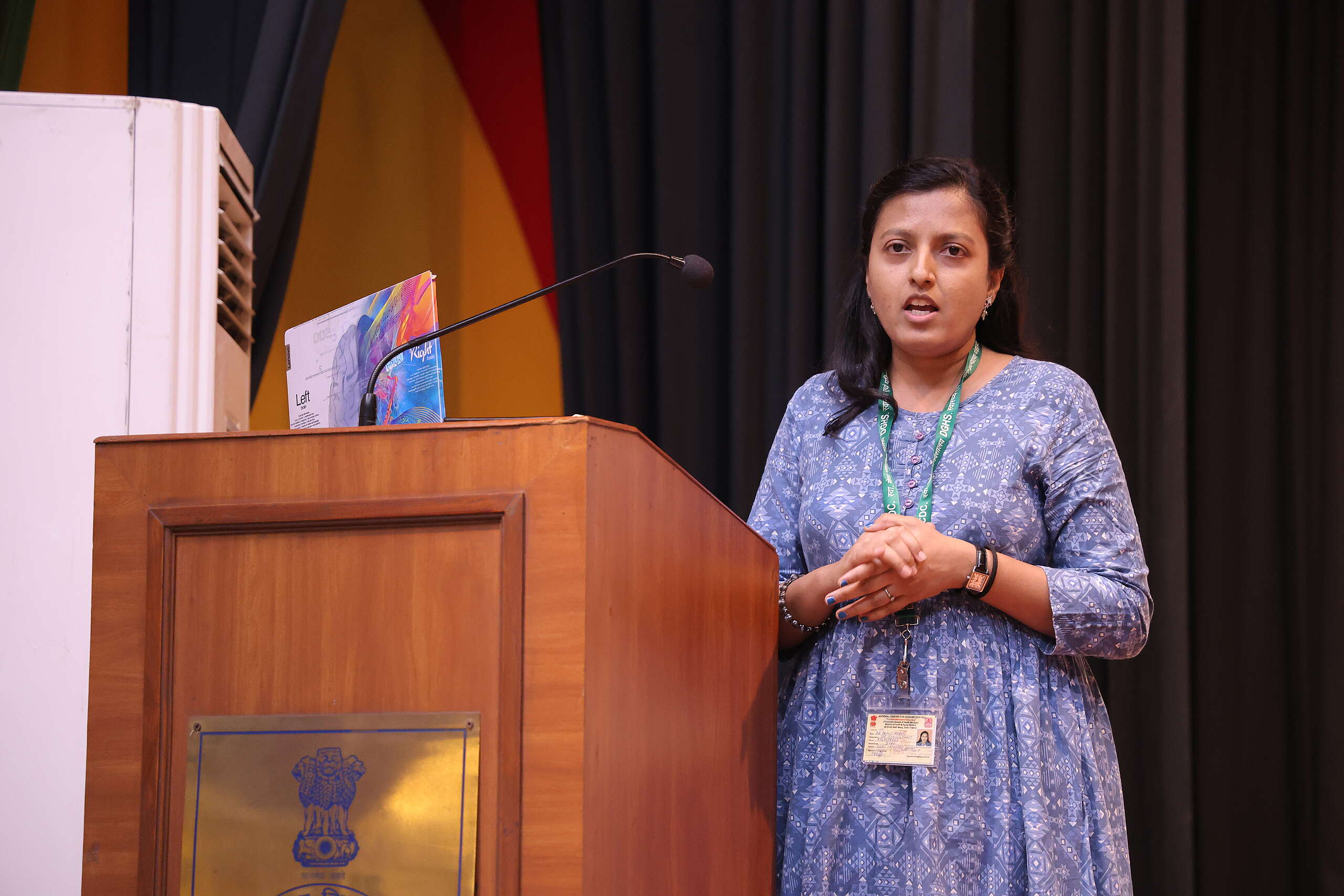
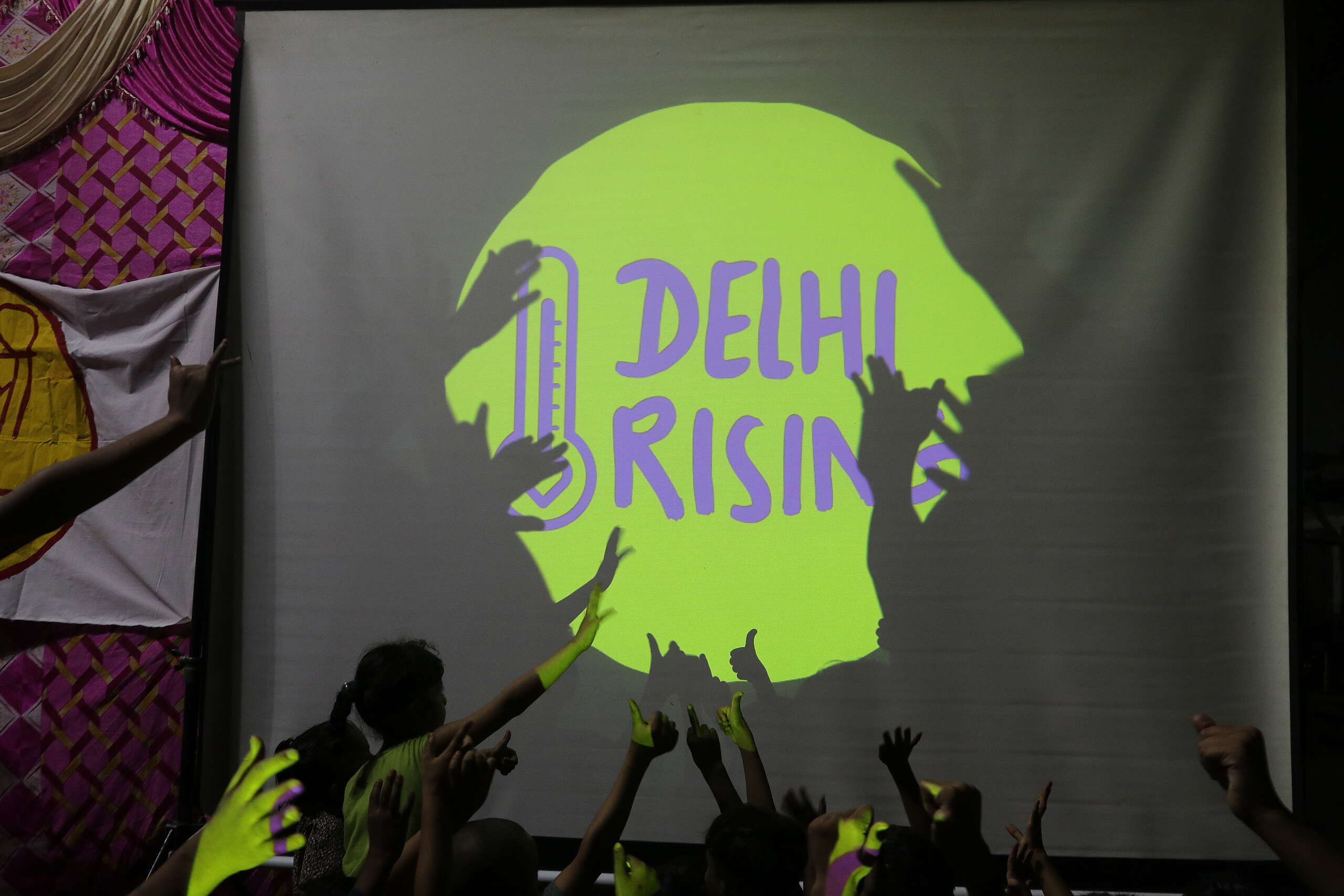
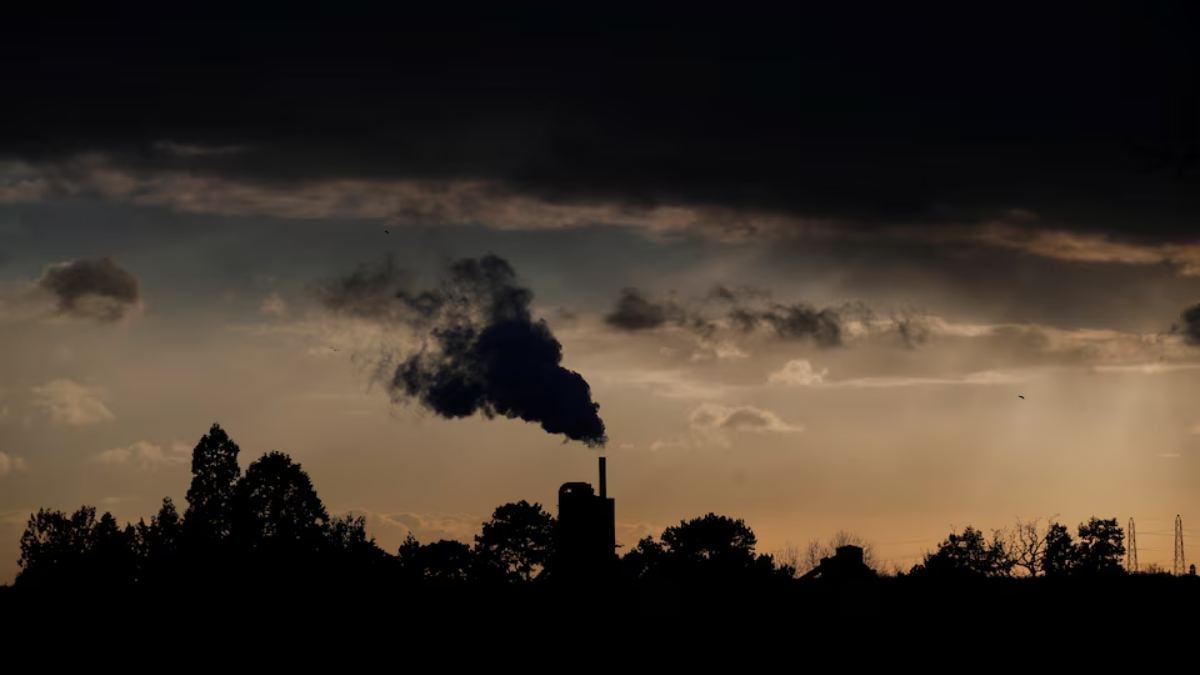
Discussion
Land development program for our society with organic farming methods, please your support is oriented our farmers